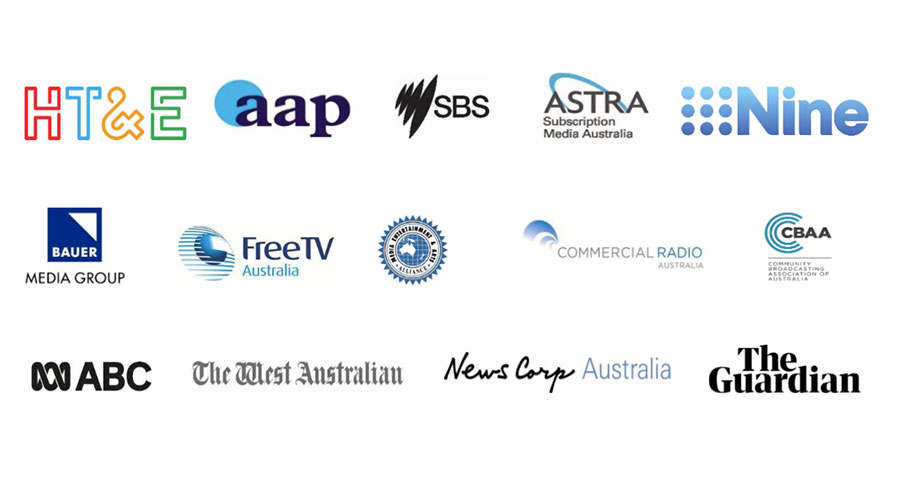This document provides details to support the position put forward at the National Press Club’s Press Freedom: On the Line event on 26 June 2019.
1. THE RIGHT TO CONTEST THE APPLICATION FOR WARRANTS FOR JOURNALISTS AND MEDIA ORGANISATIONS
Applications for the issue of all warrants must be contestable. This requires:
• The Attorney-General’s approval of applications for all warrants regarding journalists and media organisations
• Applications for all warrants must be made to an independent third party with experience in weighing evidence at the level of a judge of the Supreme Court, Federal Court or High Court
• The journalist/mediaorganisation being notified of the application for a warrant
• The journalist/media organisation being represented at a hearing, presenting the case for the Australian public’s right to know including the intrinsic value in confidentiality of journalists’ sources and media freedom
• The independent third party deciding whether to authorise the issuing of a warrant – or not – having considered the positions put by both parties
• A warrant can only be authorised if the public interest in accessing the metadata and/or content of a journalist’s communication outweighs the public interest in NOT granting access, including, without limitation, the public interest in: the public’s right to know, the protection of sources including public sector whistle-blowers; and media freedom
• The journalist/media organisation has a reasonable period after the warrant is authorised to seek legal recourse including injunctions and judicial review
• A transparency and reporting regime covering applied for and issued warrants
2. PUBLIC SECTOR WHISTLE-BLOWERS MUST BE ADEQUATELY PROTECTED – THE CURRENT LAW NEEDS TO CHANGE
Public Interest Disclosures
The Public Interest Disclosure Act purports to provide protections for public sector whistle-blowers. It falls a long way short of this. Changes required include:
• ‘Protections’ in all cases require review, public service whistle-blowing should be encouraged and adequate protections must be provided including protections for external public disclosure
• Protection for intelligence agency personnel and staff of Members of Parliament
• Expand the public interest test to remove bias against external disclosure
• Presumption of criminal liability should not lie against the media for using or disclosing identifying information during the course of news gathering
• The ability for identifying sources via journalists’ communications and metadata (Journalist Information Warrant Scheme) makes a mockery of the shield law that protects the identity of journalists’ sources once proceedings have commenced (ARTK submission to be made to PJCIS)
Proposed Commonwealth Integrity Commission
The framework for the proposed Commonwealth Integrity Commission should safeguard public broadcasters’ role as a provider of public interest journalism. It should ensure confidential sources continue to have confidence to bring allegations of corruption in public service agencies to the attention of public service broadcasters’ journalists, without fearing that their documents and/or identity will be revealed, and without public broadcasters’ journalists being at risk of being called before a hearing to reveal their sources. Hearings on public sector corruption should be public so that media companies can report on them.
3. A NEW REGIME THAT LIMITS WHICH DOCUMENTS CAN BE STAMPED SECRET
Legal experts such as Bret Walker SC, who previously held the Commonwealth role of Independent National Security Legislation Monitor (INSLM), have recommended “new overarching legislation that defines in a restrictive fashion what information must be kept secret”. We support this. It must include a transparency requirement via auditing and reporting requirements
4. A PROPERLY FUNCTIONING FOI REGIME
The Government can also shut down reporting through the FOI process. FOI laws require meaningful attention and improvement in all aspects. A review of FOI laws must include a panel of FOI “user” experts and this must include specialist journalist representatives.
5. JOURNALISTS MUST BE EXEMPTED FROM NATIONAL SECURITY LAWS ENACTED OVER THE LAST SEVEN YEARS – THAT WOULD PUT THEM IN JAIL FOR DOING THEIR JOBS
We have provided detailed analysis regarding the following, including that exemptions for public interest reporting are essential:
• Section 35P of the ASIO Act
• Journalist Information Warrant Scheme at Division 4C of the Telecommunications Interception and Access Act
• Criminal Code Act, Part 5.2 – Espionage and related offences; Part 5.6 – Secrecy of information, section 119.7 – Foreign incursions and recruitment; section 80.2C – Advocating terrorism
• Crimes Act – sections 15HK and 15HL – Controlled operations, unauthorised disclosure of information; section 3ZZHA – Delayed notification search warrants, unauthorised disclosure of information
6. DEFAMATION LAW REFORM
We are actively involved in the current Council of Attorney’s General review of the unified defamation law. We have asked for the following:
• Update the law to be fit-for-purpose for digital news reporting
• Fix the aspects of the law which do not operate as intended
• Ensure the Commonwealth is a signatory to the Intergovernmental Agreement (and consequential amendments to the Federal Court Act) so that defamation law and procedures is aligned across all jurisdictions, including in the Federal Court
